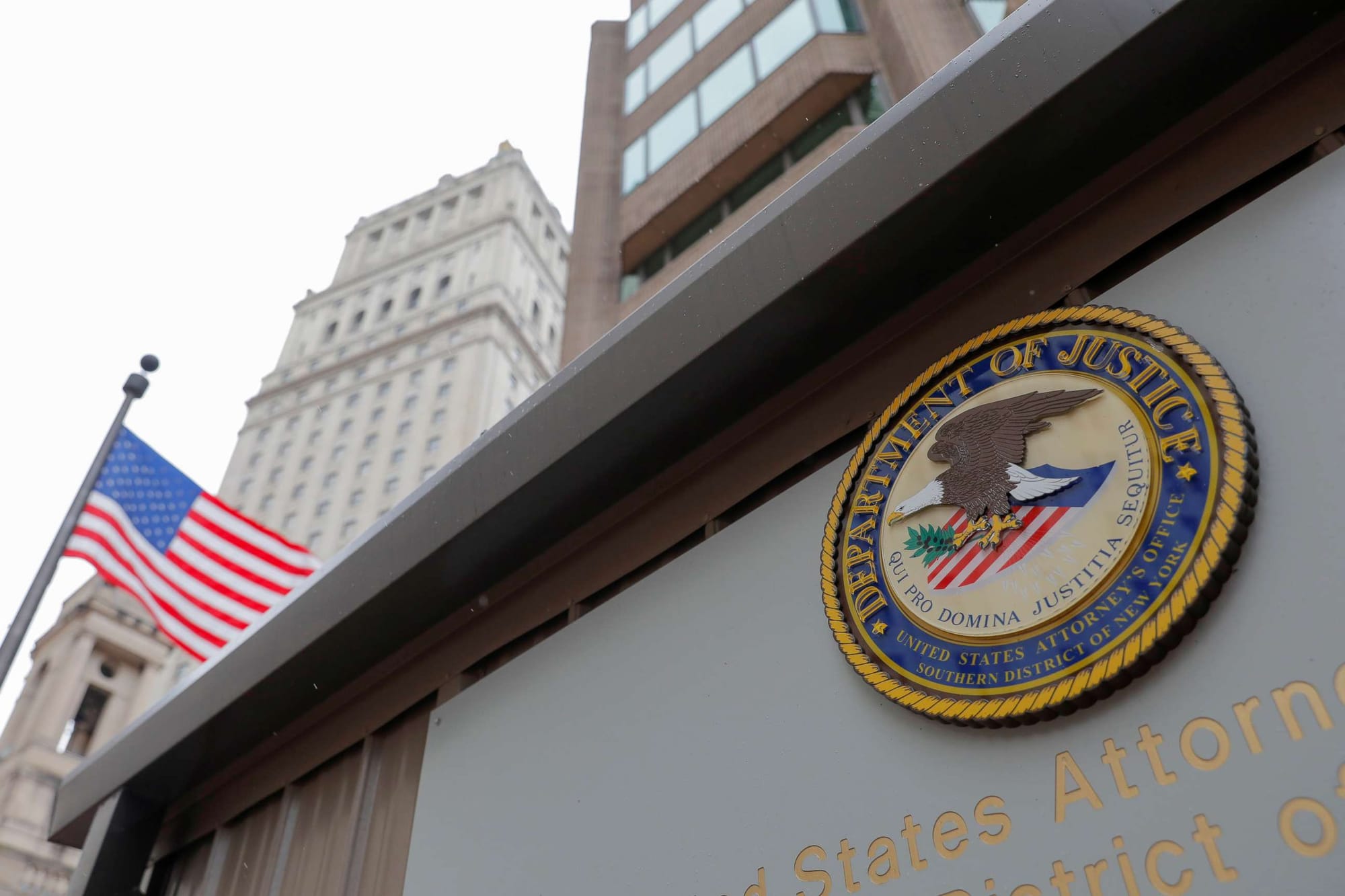Key Takeaways:
I. Nvidia's dominant market share in AI chips, coupled with its control over key technologies, raises concerns about potential anti-competitive practices.
II. The strategic partnership between Microsoft and OpenAI, while potentially beneficial for innovation, raises antitrust concerns due to its exclusive nature and potential for market foreclosure.
III. The ongoing investigations underscore the need for a modern approach to antitrust enforcement that addresses the unique challenges posed by the digital economy and the rapid advancement of AI.
The accelerating pace of innovation in artificial intelligence has brought with it a new set of regulatory challenges. As AI becomes increasingly integrated into our lives, concerns about market dominance, anti-competitive practices, and the potential stifling of innovation are coming to the forefront. The U.S. Justice Department and FTC's investigations into Microsoft, OpenAI, and Nvidia are not isolated incidents; they represent a broader trend of increased regulatory scrutiny of the tech industry, particularly in the rapidly evolving field of AI. These investigations delve into the complex interplay between market power, strategic alliances, and the potential for these dynamics to reshape the competitive landscape. This analysis will examine the key issues at stake, exploring the potential consequences for the future of AI.
Nvidia's AI Chip Dominance: A Case Study in Market Power
Nvidia's dominance in the AI chip market is undeniable. Holding an estimated 70-95% market share, with gross margins between 70-80%, the company exerts significant influence over the entire AI ecosystem. This market power stems not only from its high-performance GPUs but also from its control over key software and development tools, such as the CUDA platform. This creates a formidable barrier to entry for competitors and raises concerns about Nvidia's ability to dictate prices and potentially stifle innovation.
The barriers to entry in the AI chip market are substantial, further solidifying Nvidia's position. Developing advanced AI chips requires significant R&D investment, specialized manufacturing capabilities, and access to a skilled workforce. These factors create a significant hurdle for new entrants, allowing Nvidia to maintain its leadership position. Moreover, Nvidia's established ecosystem, including CUDA, creates a network effect that makes it difficult for competitors to gain traction, even with innovative hardware solutions.
Despite Nvidia's dominance, the competitive landscape is not static. Companies like AMD and Intel are investing heavily in developing their own AI chips, aiming to challenge Nvidia's leadership. The shift towards inference-focused AI chips also presents an opportunity for smaller players to enter the market. These emerging competitors are betting on innovative chip designs and specialized architectures to differentiate themselves and gain market share. The success of these efforts will depend on their ability to overcome Nvidia's established ecosystem and offer compelling alternatives to CUDA.
The Justice Department's investigation into Nvidia will focus on whether the company has leveraged its market dominance to engage in anti-competitive practices. This includes examining Nvidia's pricing strategies, its control over the CUDA ecosystem, and its relationships with key customers and suppliers. The outcome of this investigation could have significant implications for the future of the AI chip market, potentially leading to fines, behavioral remedies, or even structural changes to the industry.
The Microsoft-OpenAI Alliance: A Strategic Partnership Under Scrutiny
Microsoft's $13 billion investment in OpenAI has cemented a strategic partnership with significant implications for the AI landscape. This alliance grants Microsoft exclusive access to OpenAI's cutting-edge technologies, including the powerful GPT language models. This preferential access raises immediate antitrust concerns, as it potentially gives Microsoft an unfair advantage over competitors in various markets, including cloud computing, search, and productivity software.
The exclusive licensing agreement between Microsoft and OpenAI is a central point of contention. This agreement not only grants Microsoft preferential access to OpenAI's technology but also entitles Microsoft to a significant share of OpenAI's profits. This arrangement creates a strong incentive for Microsoft to favor OpenAI's technology over competing solutions, potentially stifling innovation and limiting consumer choice.
The integration of OpenAI's technology into Microsoft's products and services further amplifies antitrust concerns. By incorporating GPT models into Azure, Bing, and Office, Microsoft creates a powerful ecosystem that could lock out competitors and solidify its dominance in key markets. This integration raises questions about market foreclosure and the potential for reduced consumer choice, as alternative AI providers may struggle to compete with Microsoft's integrated offerings.
The FTC's investigation into the Microsoft-OpenAI partnership will examine whether this alliance has resulted in anti-competitive practices. The investigation will scrutinize the terms of the licensing agreement, the extent of Microsoft's control over OpenAI's technology, and the impact of this partnership on the broader AI ecosystem. The outcome of this investigation could have far-reaching consequences, potentially leading to fines, behavioral remedies, or even structural changes to the partnership.
The Global AI Regulatory Landscape: A Comparative Analysis
The regulatory landscape for AI is evolving rapidly, with different jurisdictions taking distinct approaches. The US, while traditionally favoring a market-driven approach, is now considering more proactive interventions to address potential anti-competitive practices in the AI sector. The EU, with its Digital Markets Act (DMA) and Digital Services Act (DSA), is taking a more aggressive stance, aiming to regulate the behavior of large online platforms and prevent market dominance. China, on the other hand, is pursuing a state-centric model, prioritizing national champions and exerting greater control over data and AI development.
A key differentiator in these regulatory approaches lies in their treatment of data. The EU's GDPR emphasizes data privacy and individual rights, potentially limiting the ability of companies to collect and utilize data for AI development. China's data regulations, while prioritizing national security, also facilitate greater data sharing within its borders, potentially accelerating AI development within its ecosystem. The US, navigating between these two extremes, faces the challenge of balancing data privacy with the need to foster innovation and maintain its competitive edge in the global AI race. This divergence in data regulation will likely shape the future trajectory of AI development in each region, influencing the types of AI applications that thrive and the companies that dominate the market.
The Future of AI: Balancing Innovation and Regulation
The ongoing antitrust investigations into Microsoft, OpenAI, and Nvidia represent a pivotal moment for the AI industry. The outcome of these investigations will not only impact the companies involved but also shape the future of AI regulation and the competitive landscape. Finding the right balance between fostering innovation and preventing anti-competitive practices is crucial. A heavy-handed regulatory approach could stifle innovation, while a lack of oversight could lead to market dominance and reduced consumer welfare. The future of AI depends on a nuanced and adaptable regulatory framework that promotes competition, protects consumers, and fosters responsible innovation.
----------
Further Reads
I. Data-Center AI Chip Market – Q1 2024 Update | TechInsights
II. Nvidia dominates the AI chip market, but there's more competition than ever
III. Nvidia dominates the AI chip market, but there's more competition than ever









